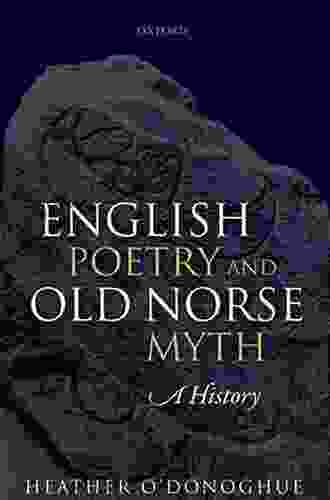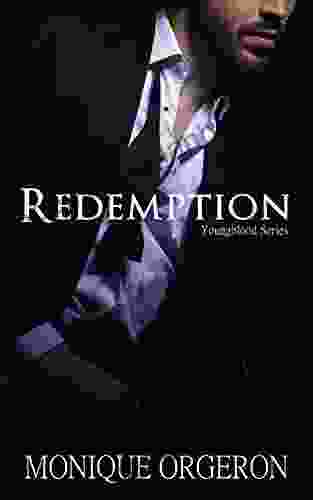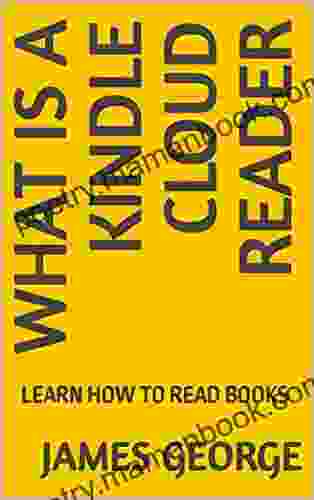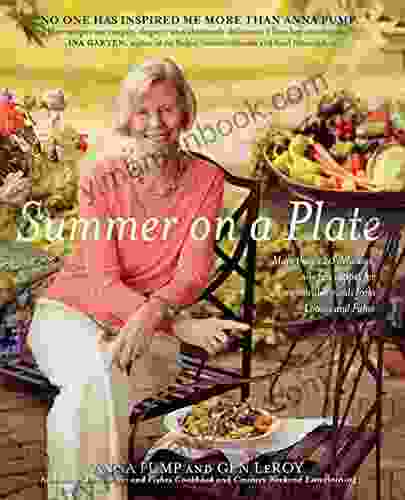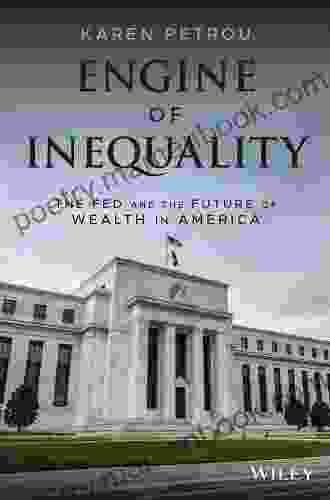English Poetry and Old Norse Myth: A Tapestry of Influence and Inspiration

English poetry and Old Norse myth have intertwined in a profound and enduring embrace, creating a tapestry of literary excellence that continues to captivate the imagination. From the evocative imagery of Beowulf to the ethereal visions of J.R.R. Tolkien, the influence of Norse mythology on English literature is undeniable.
Origins of the Connection
The roots of this literary fusion can be traced back to the Viking Age (8th-11th centuries),when Norse raiders and settlers brought their tales and traditions to the shores of England. The Anglo-Saxon poets, with their own rich storytelling heritage, were enthralled by these unfamiliar myths and incorporated them into their own works.
5 out of 5
| Language | : | English |
| File size | : | 14238 KB |
| Print length | : | 256 pages |
| Lending | : | Enabled |
| Screen Reader | : | Supported |
The Impact of Beowulf
The epic poem Beowulf, composed around the 8th century, stands as the most prominent example of Old Norse influence on English poetry. This masterpiece tells the tale of a Geatish warrior who travels to Denmark to aid King Hrothgar in his battle against the monstrous Grendel. The poem is awash with Norse mythology, featuring characters such as the Valkyries, the giant Finn, and the dragon that Beowulf ultimately slays.
The Influence of Eddic Poetry
The Eddas, a collection of Old Norse poems compiled in the 13th century, also played a significant role in shaping English literature. The poetic Edda, in particular, contains a wealth of stories about the Norse gods and their adventures, and these tales provided inspiration for generations of English poets.
From Chaucer to Tolkien
The influence of Norse mythology continued throughout the Middle Ages and beyond. Geoffrey Chaucer, the father of English literature, drew upon Norse sources in his unfinished masterpiece, The Canterbury Tales. In The Wife of Bath's Tale, for example, he tells the story of a loathly hag who is transformed into a beautiful princess, a tale with striking similarities to the Norse myth of the goddess Freya.
The 19th century saw a renewed interest in Norse mythology, with poets such as William Morris and Matthew Arnold incorporating it into their works. And in the 20th century, J.R.R. Tolkien, the creator of The Lord of the Rings, drew heavily upon Old Norse sagas and mythology to create his own epic fantasy world of Middle-earth.
Symbolism and Themes
Old Norse myths provided English poets with a rich trove of symbols and themes that resonated with their own experiences and beliefs. The battle between good and evil, the power of fate, and the fragility of human life are all themes that appear frequently in both Norse mythology and English poetry.
The figure of the hero, for example, is central to both traditions. In Beowulf, the hero is a warrior who embodies courage and strength, while in the Norse myths, Thor is the god of thunder and a protector against the forces of chaos.
Imagery and Language
Norse mythology also influenced the imagery and language of English poetry. The Anglo-Saxon poets adopted many Norse words and phrases, such as "berserk" and "wyrd," into their own vocabulary. And the vivid, often grotesque imagery of Norse myths found its way into the works of English poets.
A Lasting Legacy
The influence of Old Norse myth on English poetry is a testament to the enduring power of storytelling. From the epic grandeur of Beowulf to the whimsical fantasies of Tolkien, Norse mythology has left an indelible mark on the English literary landscape.
As we continue to explore and appreciate the masterpieces of English poetry, we cannot help but marvel at the intertwined threads of Norse mythology that have enriched and inspired these literary creations.
Additional Resources
- The Influence of Norse Mythology on Beowulf
- Norse Mythology in English Literature
- The Impact of Norse Mythology on J.R.R. Tolkien
Image Alt Attributes
- Beowulf battling Grendel: The hero Beowulf stands triumphant over the defeated monster Grendel, symbolizing the triumph of good over evil.
- The Valkyries choosing the slain: The Valkyries, depicted as ethereal winged warriors, hover over the battlefield, choosing the souls of the fallen to join the ranks of the gods.
- Thor battling the Midgard Serpent: The mighty god Thor engages in a fierce battle with the monstrous Midgard Serpent, a symbol of the eternal struggle between order and chaos.
- The Anglo-Saxon rune stone: A runestone carved with Anglo-Saxon runes, providing a physical connection between the Anglo-Saxon language and Norse mythology.
- J.R.R. Tolkien's depiction of Smaug: Tolkien's famous illustration of Smaug, the dragon from The Hobbit, reveals the influence of Norse dragon myths on his fantasy world.
5 out of 5
| Language | : | English |
| File size | : | 14238 KB |
| Print length | : | 256 pages |
| Lending | : | Enabled |
| Screen Reader | : | Supported |
Do you want to contribute by writing guest posts on this blog?
Please contact us and send us a resume of previous articles that you have written.
 Top Book
Top Book Novel
Novel Fiction
Fiction Nonfiction
Nonfiction Literature
Literature Paperback
Paperback Hardcover
Hardcover E-book
E-book Audiobook
Audiobook Bestseller
Bestseller Classic
Classic Mystery
Mystery Thriller
Thriller Romance
Romance Fantasy
Fantasy Science Fiction
Science Fiction Biography
Biography Memoir
Memoir Autobiography
Autobiography Poetry
Poetry Drama
Drama Historical Fiction
Historical Fiction Self-help
Self-help Young Adult
Young Adult Childrens Books
Childrens Books Graphic Novel
Graphic Novel Anthology
Anthology Series
Series Encyclopedia
Encyclopedia Reference
Reference Guidebook
Guidebook Textbook
Textbook Workbook
Workbook Journal
Journal Diary
Diary Manuscript
Manuscript Folio
Folio Pulp Fiction
Pulp Fiction Short Stories
Short Stories Fairy Tales
Fairy Tales Fables
Fables Mythology
Mythology Philosophy
Philosophy Religion
Religion Spirituality
Spirituality Essays
Essays Critique
Critique Commentary
Commentary Glossary
Glossary Bibliography
Bibliography Index
Index Table of Contents
Table of Contents Preface
Preface Introduction
Introduction Foreword
Foreword Afterword
Afterword Appendices
Appendices Annotations
Annotations Footnotes
Footnotes Epilogue
Epilogue Prologue
Prologue Tee Wakes
Tee Wakes Geri Lobiondo Wood
Geri Lobiondo Wood Mitra Politi
Mitra Politi N T Franklin
N T Franklin Ananish Chaudhuri
Ananish Chaudhuri Helen Moon
Helen Moon Justina Wheelock
Justina Wheelock Ryan Mitchell
Ryan Mitchell Viki Winterton
Viki Winterton Ana Sampson
Ana Sampson Paul Roetzer
Paul Roetzer Tina Blythe
Tina Blythe Catherine Cho
Catherine Cho Dave Todaro
Dave Todaro Crystal Warakomski
Crystal Warakomski Yael Cohen
Yael Cohen Wade Bourne
Wade Bourne Bernadette Banner
Bernadette Banner Aeschylus
Aeschylus Tonke Dragt
Tonke Dragt
Light bulbAdvertise smarter! Our strategic ad space ensures maximum exposure. Reserve your spot today!
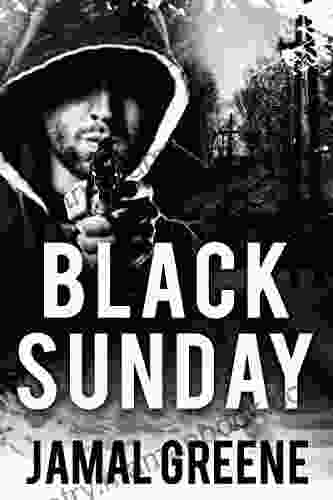
 Colin RichardsonBlack Sunday: An Unforgettable Tale of Haunted Love by Henry Wadsworth...
Colin RichardsonBlack Sunday: An Unforgettable Tale of Haunted Love by Henry Wadsworth... Cade SimmonsFollow ·18.4k
Cade SimmonsFollow ·18.4k Arthur MasonFollow ·3.2k
Arthur MasonFollow ·3.2k Evan SimmonsFollow ·11.3k
Evan SimmonsFollow ·11.3k Deacon BellFollow ·6k
Deacon BellFollow ·6k Melvin BlairFollow ·6.4k
Melvin BlairFollow ·6.4k Isaac BellFollow ·2.1k
Isaac BellFollow ·2.1k Wayne CarterFollow ·5k
Wayne CarterFollow ·5k Al FosterFollow ·3.4k
Al FosterFollow ·3.4k
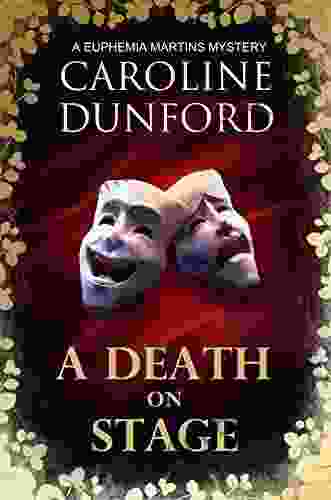
 Patrick Hayes
Patrick HayesDeath on Stage: Euphemia Martins Mystery 16
Synopsis In the...
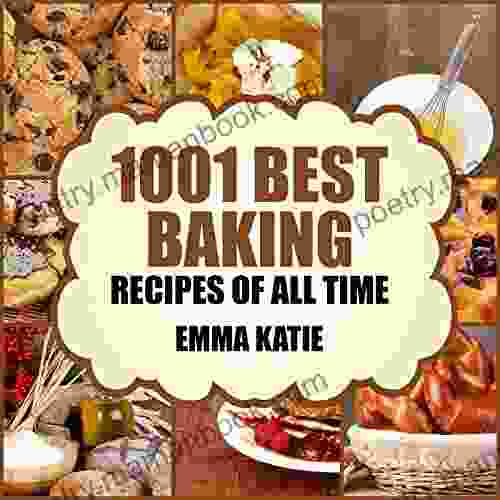
 Benji Powell
Benji Powell1001 Best Baking Recipes Of All Time
Baking is a fun and...
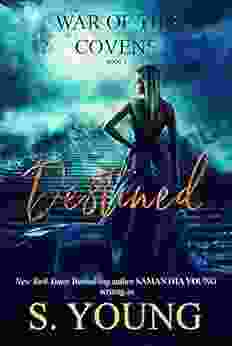
 Terry Bell
Terry BellDestined War of the Covens: A Supernatural Saga of Power,...
Welcome to the...
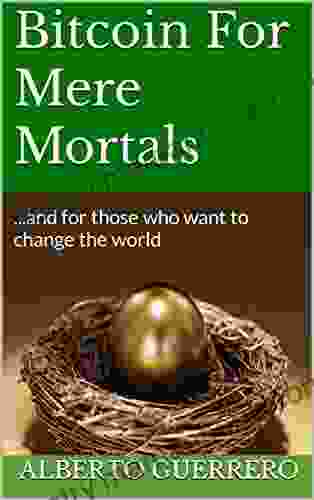
 Mark Twain
Mark TwainBitcoin For Mere Mortals: A Comprehensive Guide for...
Bitcoin is a...
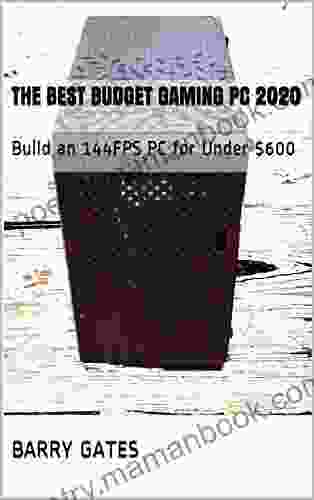
 Dennis Hayes
Dennis HayesThe Best Budget Gaming PC 2024: Build the Ultimate Gaming...
Are you looking to build the best budget...
5 out of 5
| Language | : | English |
| File size | : | 14238 KB |
| Print length | : | 256 pages |
| Lending | : | Enabled |
| Screen Reader | : | Supported |


